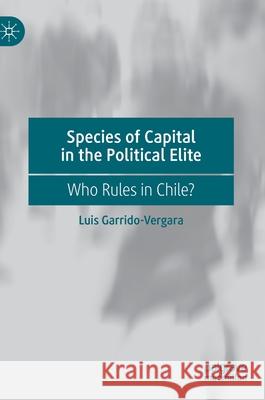Species of Capital in the Political Elite: Who Rules in Chile? » książka
topmenu
Species of Capital in the Political Elite: Who Rules in Chile?
ISBN-13: 9783030411718 / Angielski / Twarda / 2020 / 288 str.
Species of Capital in the Political Elite: Who Rules in Chile?
ISBN-13: 9783030411718 / Angielski / Twarda / 2020 / 288 str.
cena 201,72
(netto: 192,11 VAT: 5%)
Najniższa cena z 30 dni: 192,74
(netto: 192,11 VAT: 5%)
Najniższa cena z 30 dni: 192,74
Termin realizacji zamówienia:
ok. 22 dni roboczych.
ok. 22 dni roboczych.
Darmowa dostawa!
Kategorie:
Kategorie BISAC:
Wydawca:
Palgrave MacMillan
Język:
Angielski
ISBN-13:
9783030411718
Rok wydania:
2020
Wydanie:
2020
Ilość stron:
288
Waga:
0.65 kg
Wymiary:
21.01 x 14.81 x 2.54
Oprawa:
Twarda
Wolumenów:
01
Dodatkowe informacje:
Wydanie ilustrowane











